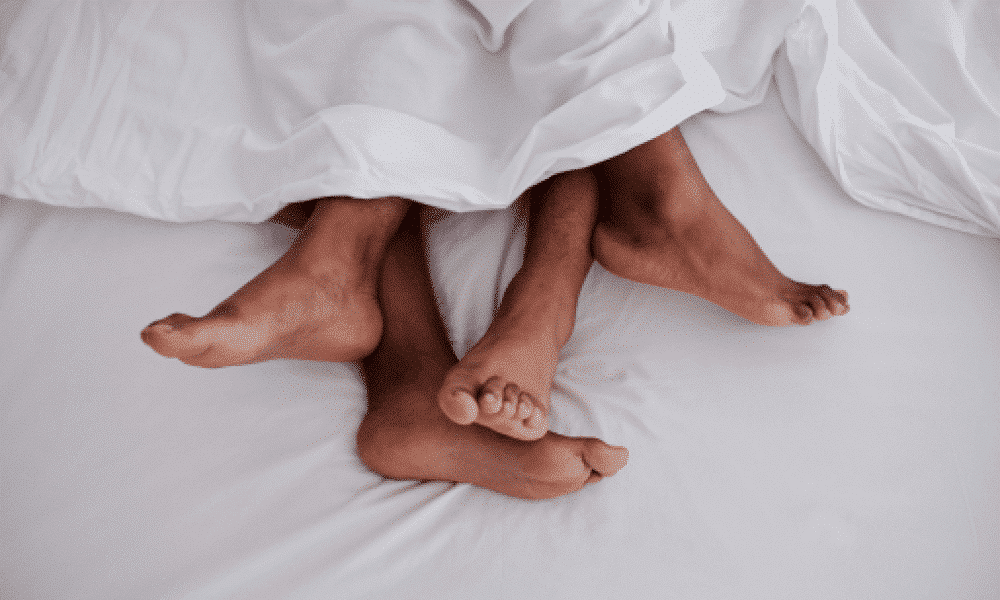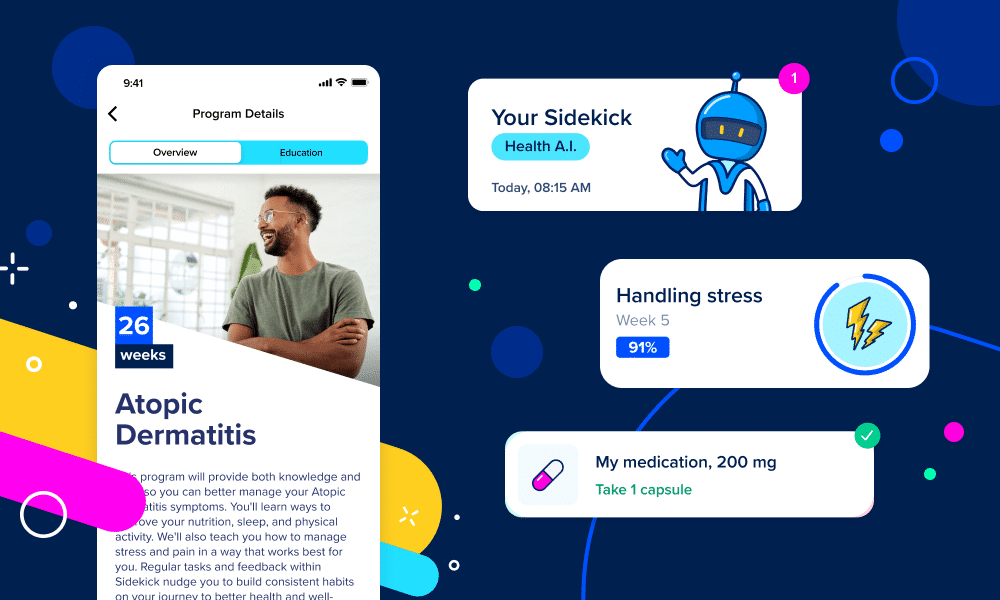|
Getting your Trinity Audio player ready...
|
Leanna has lived with eczema her entire life. While the impact of her condition is far-reaching, she has reached a place of acceptance with her skin.
Leanna shared her story of how she found peace with her eczema as well as what she’s learned from living with a chronic condition.
Please note that this article solely reflects the individual experience of the interviewee. This should not be taken as medical advice.
Thank you so much for sharing your story with us, Leanna. Can you tell us a bit about your experience with eczema? How does it affect your day-to-day life?
I have lived with eczema for almost my entire life, so I’m all too familiar with this condition.
When I was just one year old, I started developing red itchy patches all over my body, which made me a very irritable and grumpy baby.
As I grew older, I was able to manage my eczema for the most part by using steroid creams sparingly whenever I encountered a flare-up.
However, my eczema came back in full force at the beginning of my first year at university.
Shortly after moving into student residence, I started getting red and itchy rashes that spread across my face and body, which would then become scaly and dry on a constant basis.
I thought it was caused by environmental changes and school-related stress.
Unfortunately, my eczema persisted throughout that year, even after I moved back home.
Over time, I sought medical help from a handful of doctors but was unsuccessful in finding an effective treatment.
Since then, I’ve experienced a roller coaster of eczema flare-ups, ranging from feeling slightly irritating to extremely unbearable.
I’m currently healing from a four-month-long flare-up and hope to help others with their eczema-healing journey by sharing my story.
Eczema triggers and symptoms vary greatly from person to person. How did you learn how to identify your own eczema triggers and symptoms?
I learned to identify my specific triggers after experiencing a lot of unpleasant flare-ups over the course of my life.
In order to investigate the root cause of my condition, I tried to pinpoint the commonalities between each of the times my skin worsened. I noticed that a flare-up would typically occur after a significant life change that brought on additional stress. This included moving to a new area, going to a different school, working a demanding job, and being in an unstable relationship.
As a highly-sensitive person, I often find it more challenging to manage stress, which is a detriment to my physical and emotional health.
Other triggers I identified were alcohol and coffee, which I collectively consumed more frequently during the same time my first major flare-up occurred as a young adult.
I started to notice that my skin would feel hot and itchy after a night of drinking, which would then lead to persistent rashes. Coffee on the other hand would mainly trigger flare-ups when my stress levels were already unstable.
I’ve come to realize that it is often an accumulation of factors that trigger my eczema, rather than a single cause.
How do you explain your eczema to the people in your life who maybe don’t know so much about the condition?
I try to explain to people that eczema is a chronic condition with no magical cure, as far as we know.
It often affects people emotionally just as much as it affects them physically, if not more.
Eczema is a diverse condition that affects each individual differently. One person may only get eczema on their hands, while another may get it all over their body. One person may only get a flare-up a couple of times a year, while another may get it on a weekly basis.
Everyone has unique triggers and ways to manage them, so there is no one-size-fits-all solution. Eczema is a disease that goes beyond the surface of the skin. Another term for eczema is atopic dermatitis, meaning that it is associated with a dysfunction of the immune system.
Therefore, it needs to be treated as such, rather than with band-aid solutions that only target the surface of the skin.
How does your eczema affect your mental health?
Eczema significantly affects my mental health in many ways. The physical pain of having itchy and inflamed skin leads to the emotional pain of feeling helpless and distressed.
Nearly every day, I’m haunted by the feeling that this condition will control my life forever. Even on days when my skin is doing well, I anxiously anticipate when my next flare-up will occur.
I’m chronically stressed about my skin, which only exacerbates my eczema. It is a vicious cycle that I’m determined to break.
Has your eczema triggered any issues with your body image? How did you overcome them?
Yes, extremely.
When I look in the mirror and see my body covered in red scaly rashes and peeling skin, I can’t help but feel insecure about myself. I think to myself, nobody wants to see that. I look damaged and unhealthy; I look undesirable.
However, I realize how cruel it is to talk to myself like that.
The appearance of my skin does not determine a single ounce of my worth. I know I am a beautiful person, with or without my skin issues.
If anything, my eczema has made me a more resilient, grateful, and compassionate person. I remind myself of how much I have overcome so far, and that is what keeps me going.
Did you manage to reach a place of acceptance when it comes to your eczema? If so, how?
I have recently been practicing more acceptance of my eczema after years of constantly fighting and resisting it.
I have now come to terms with the fact that this is a condition that will most likely stay with me for the rest of my life.
I realized that it only caused me more harm and suffering to expend all of my energy on finding a cure for my eczema.
I have tried almost everything including elimination diets, cleanses, topical treatments, UV therapy, herbal medicine, you name it. It only led to more frustration and defeat when none of these treatments got rid of my skin issues.
Trust me, I will never stop trying to heal my eczema. However, instead of rejecting and resenting this condition, I have focused on embracing this part of me by taking care of my overall health and well-being.
I believe that your perception greatly determines your experience; mind over matter.
Have you learned anything from your experience with eczema?
Yes, I have learned a great deal from living with eczema for nearly my entire life.
I have learned that life is not easy. Everyone is presented with a unique set of challenges that they will have to face at some point. For me, one of those challenges is eczema.
In my experience, challenges create change, and I believe that my eczema has led to more positive changes in my life.
I now prioritize my physical and mental health more than I ever would have if I did not have this condition. I have also learned that you can always find beauty in pain. I see my rashes as markers of strength; my battle scars.
I am proud of how much I have overcome by living with this condition.
Most importantly, I’ve learned that I am loved. During the most painful times of my eczema, my loved ones were always there to help me through it. I have received unconditional support from my family, friends, and partner, which is something I will be forever grateful for.
The eczema program from Sidekick is designed to provide you with the right support throughout your eczema journey. The program features a host of educational resources on eczema and connects you to a health coach so you can access support whenever you need it.
Explore the Atopic Dermatitis program and find your eczema Sidekick today.










